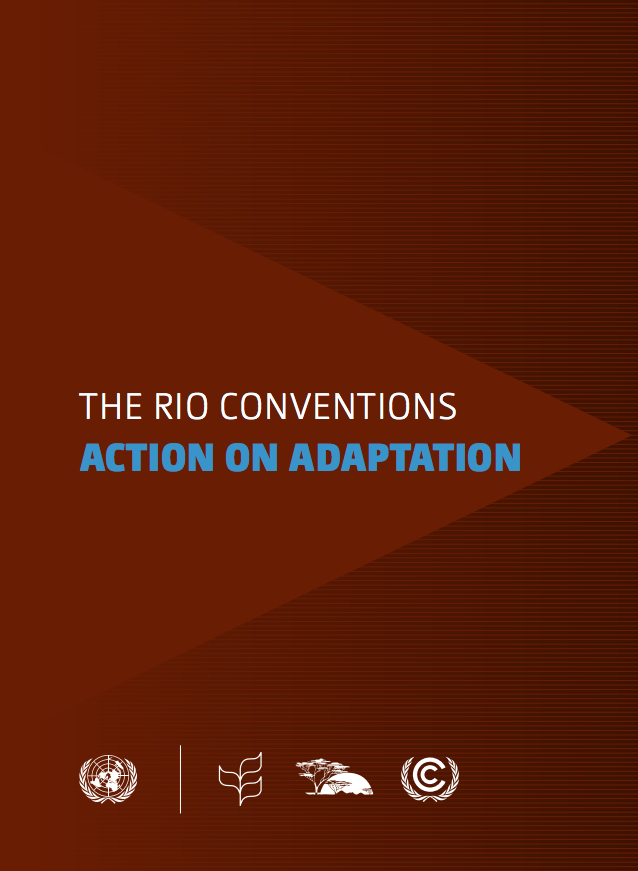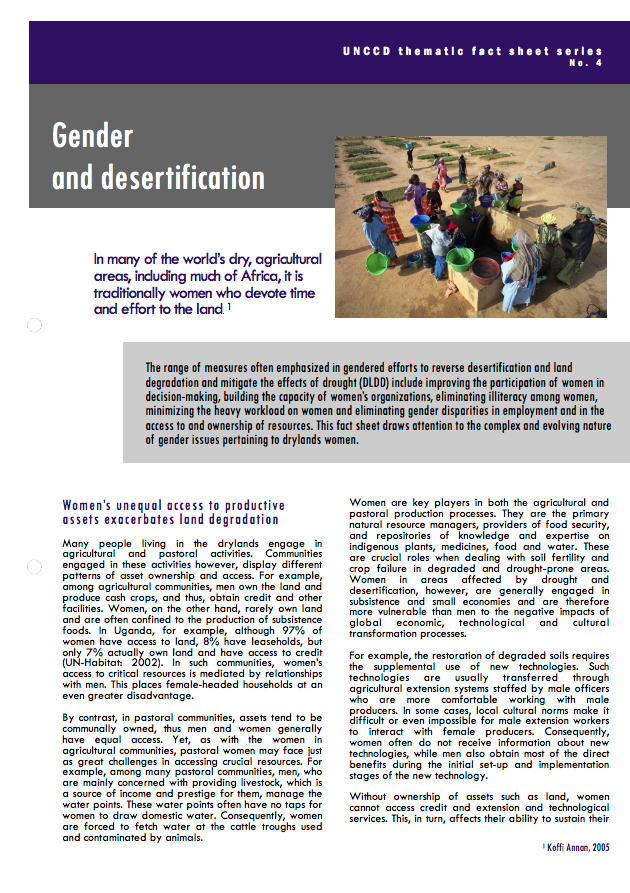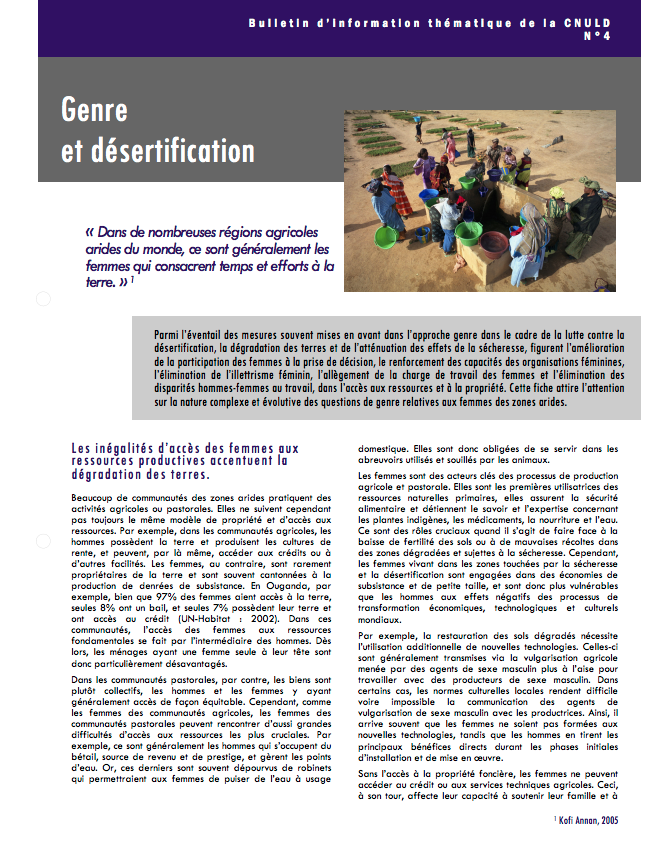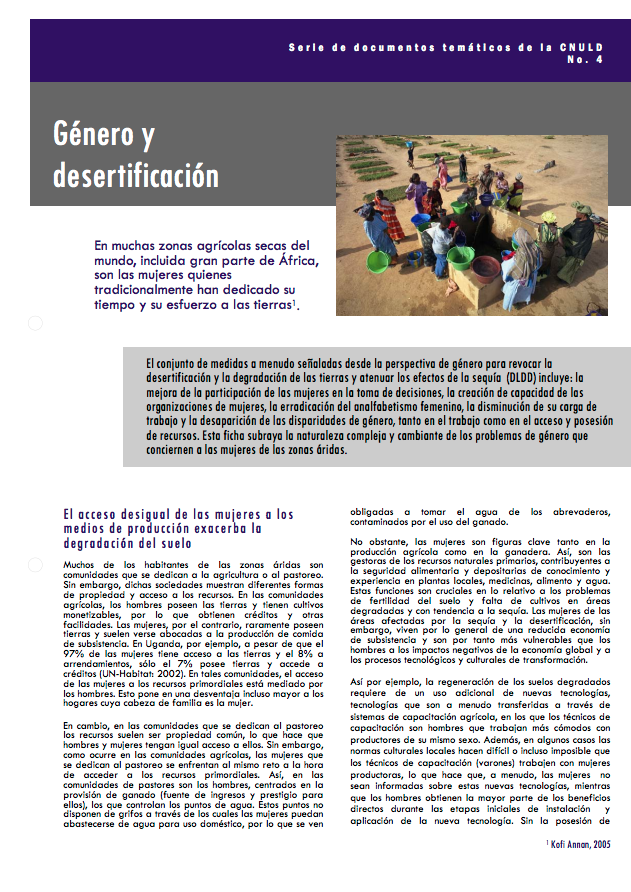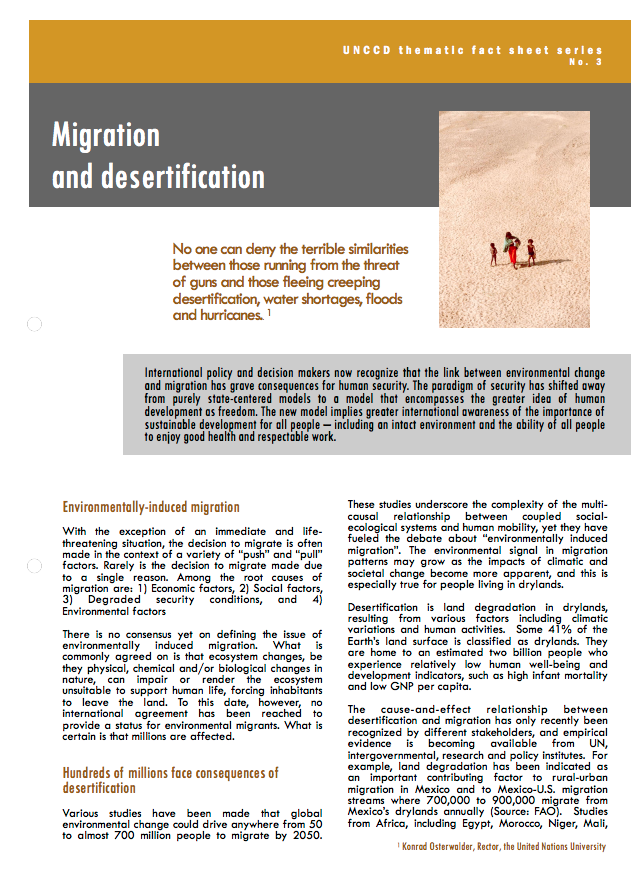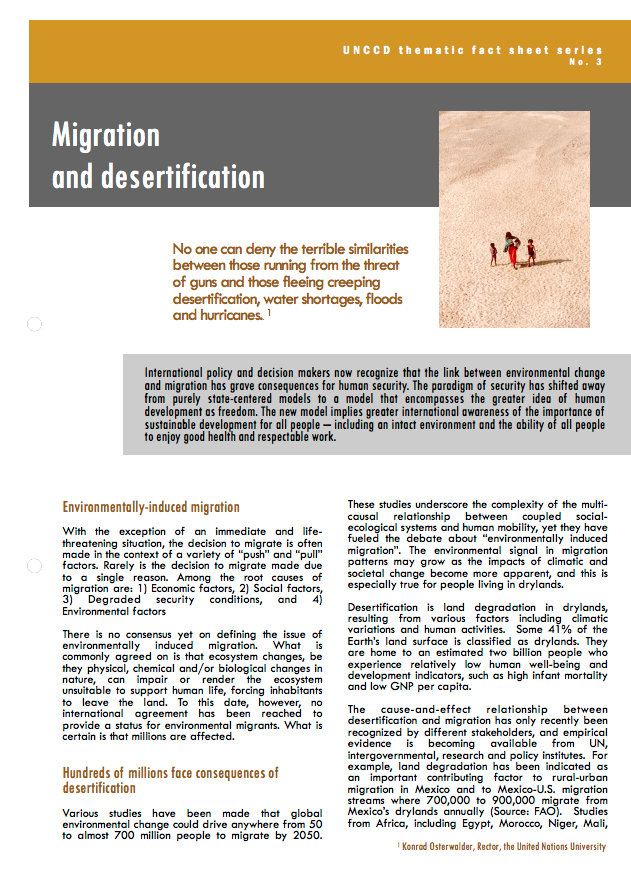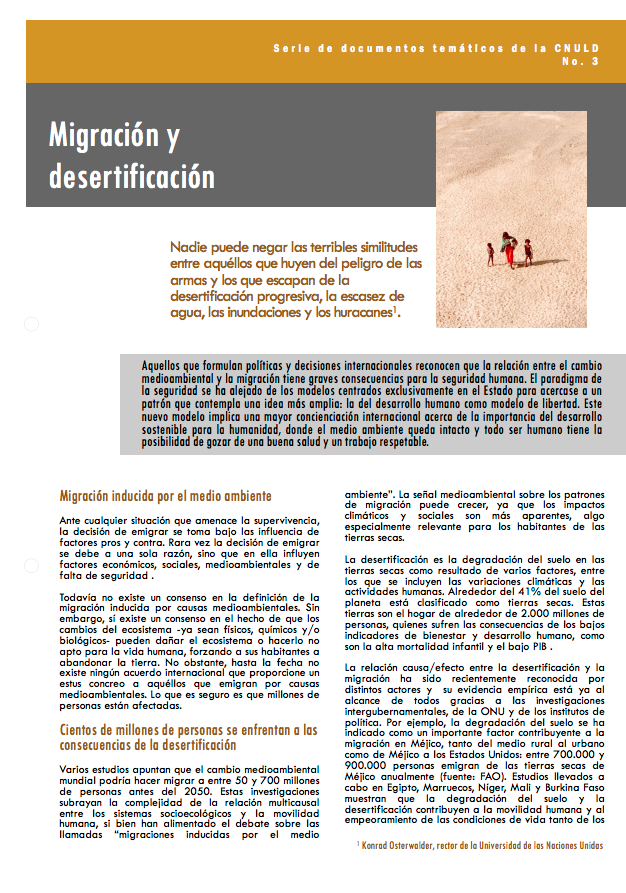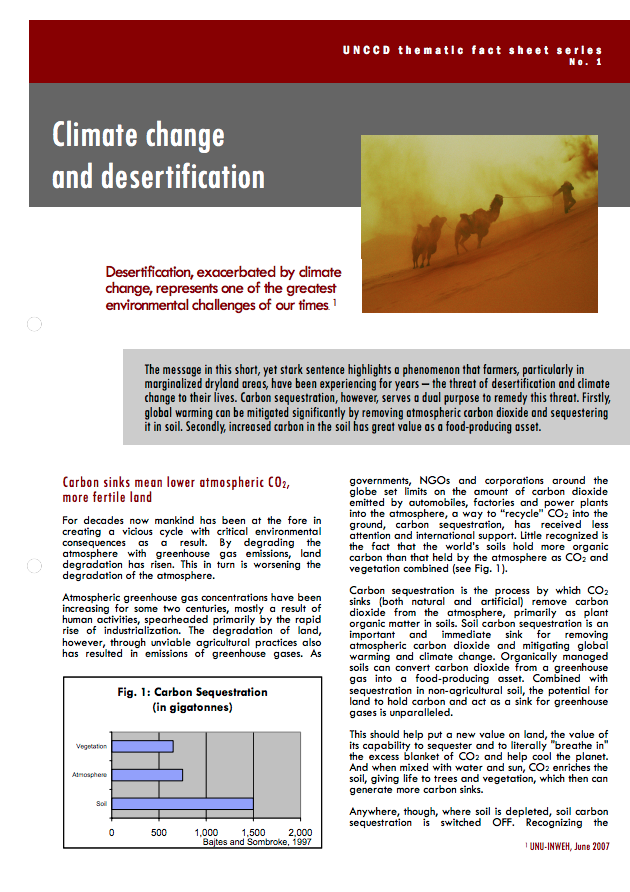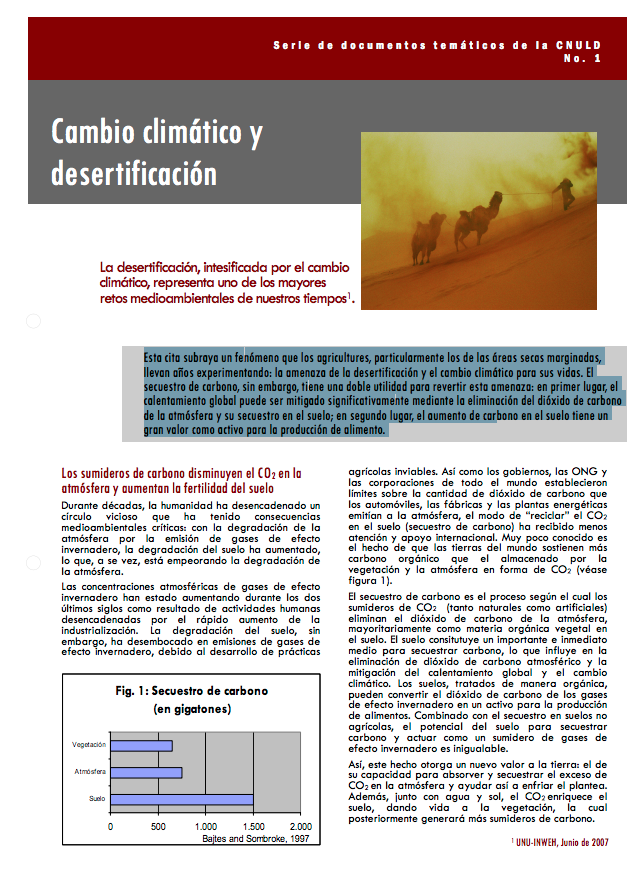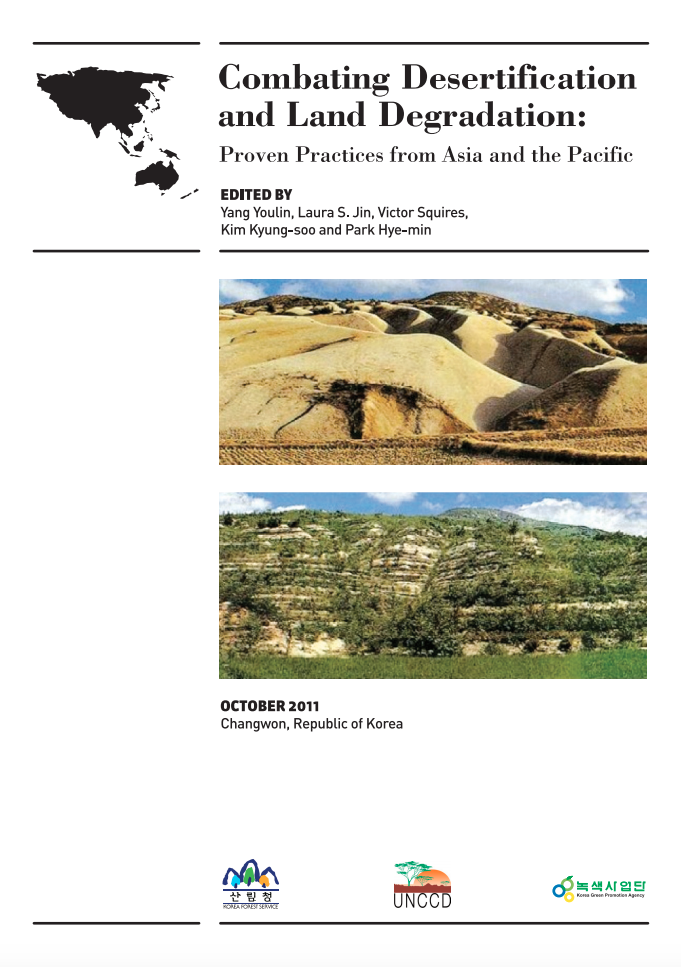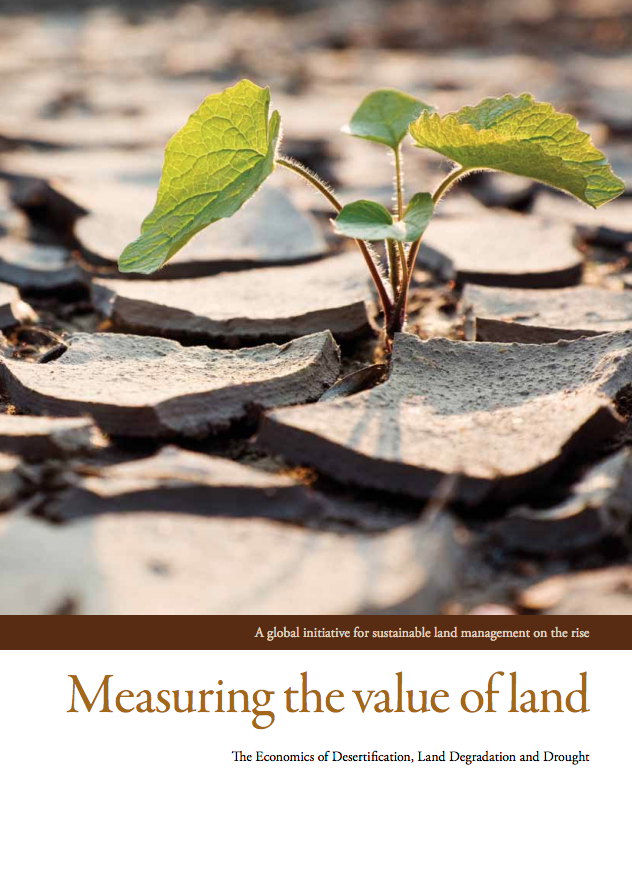The Rio Conventions: Action on Adaptation
The earth’s climate is changing at a rate unprecedented in recent human history and will continue to do so for the foreseeable future. The impacts and risks associated with this are global, geographically diverse and increasingly being felt across a range of systems and sectors essential for human livelihoods and well-being. The more severe and far-reaching the impacts of climate change are, the greater the loss of species will be, and the greater the deterioration of drylands and the risk of desertification and land degradation around the world will be.

